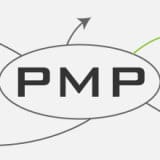How to ride on the Hummingbird update to Google Search Algorithm
Summary: Google constantly updates its search engine algorithms. The latest addition is called the Hummingbird. This post will give an overview of the changes and how webmasters can respond to minimize damages and exploit opportunities.
Google rolled out the Hummingbird update on 20 August, 2013 but deferred the announcement to 26 Sep, 2013 when Google Search celebrated its 15 anniversary. Below is an excerpt of the announcement at Inside Search Blog by Amit Singhal, SVP, Google Search:
We’ll keep improving Google Search so it does a little bit more of the hard work for you. This means giving you the best possible answers, making it easy to have a conversation and helping out before you even have to ask. Hopefully, we’ll save you a few minutes of hassle each day. So keep asking Google tougher questions—it keeps us on our toes! After all, we’re just getting started.
Google revealed very little information on the update that kept the SEO industry in the dark about how to tackle it. One important point to note is that the Hummingbird not an update but a new search algorithm as told by Google, the biggest change in search algorithm since 2001.
Why called Hummingbird?
It is the aim of Google to give search results precise and fast, just like an hummingbird.
Article Highlights
So how can SEO practitioners respond?
The following are suggestions given by Google officials and SEO experts around the world that should help tackling the changes:
“Conversation” is the Key
The whole concept of the Google algorithm change is to enable conversation-like queries to be understood more accurately and return the most appropriate results or answers. Queries are not simply parsed as keywords linked by boolean modifiers. Queries are analyzed to extract the most important meanings. This means that users can always find what they want more quickly and easily with mentally translating their questions into “machine language”.They can just type (or, speak) what they think. It may be useful to write in a more conversational like style with phrases used in everyday language, e.g. use “Where can I find XXX shops?” instead of “Shop Locator”. This will also help users browsing your website too.
Keywords Ranking Not Much Affected
Since Hummingbird is targeted mostly at conversational queries, it can be safely assumed that there is little changes to the keyword search rankings. If a user enter purely keywords as the search query, the SERP should look pretty much the same as before.
Fight Goliath with Long Tails
For new-comers, every algorithm change is a great opportunity. The Hummingbird change is even more advantageous to SMEs and local business. For example, for the queries “where to have the best pizza now?”, the new algorithm would try to find the pizza restaurants in the vicinity of your current location instead of just focusing on the multinational large pizza restaurant chain having high PageRanks. Go local and be special.
Content is still King
Simply put, focus on creating quality contents that helps internet users instead of trying to stuff keywords into the paragraphs. Google always want to help users to find the things they want to search for more quickly and accurately. In this respect, a blog or knowledge base addressing how-tos is indispensable to any websites nowadays.
Roadmap of Major Historical Updates
- Florida & Austin (2003) – eliminates black-hat SEO
- Brandy (2004) – includes results of synonyms
- Allegra, Bourbon and Jagger (2005) – emphases on high quality contents
- Vince (Feb 2009) – favors bigger brands
- Caffeine (Aug 2009) – provides newest contents quicker
- Panda (Feb 2011 ~) – focuses on content quality, penalises link farms sites
- Venince (Feb 2012) – integrates local search into SERPs
- Penguin (Apr 2012) – demotes over-optimized sites
- Hummingbird (Aug 2013) – deals with real search intents





 Hi, my name is Edward Chung, PMP, PMI-ACP®, ITIL® Foundation. Like most of us, I am a working professional pursuing career advancements through Certifications. As I am having a full-time job and a family with 3 kids, I need to pursue professional certifications in the most effective way (i.e. with the least amount of time). I share my exam tips here in the hope of helping fellow Certification aspirants!
Hi, my name is Edward Chung, PMP, PMI-ACP®, ITIL® Foundation. Like most of us, I am a working professional pursuing career advancements through Certifications. As I am having a full-time job and a family with 3 kids, I need to pursue professional certifications in the most effective way (i.e. with the least amount of time). I share my exam tips here in the hope of helping fellow Certification aspirants!





